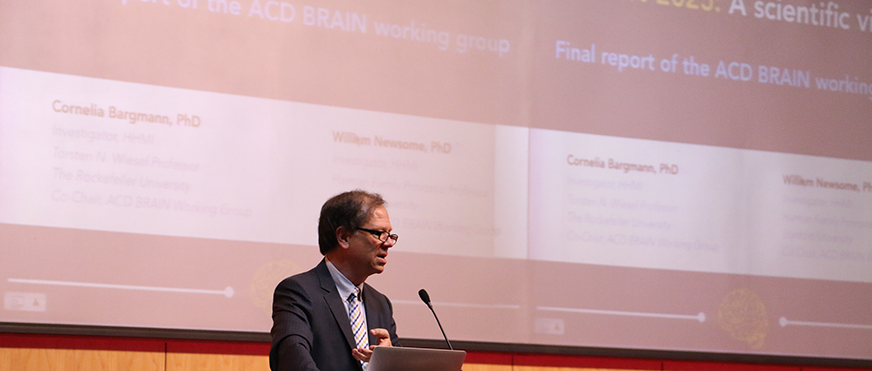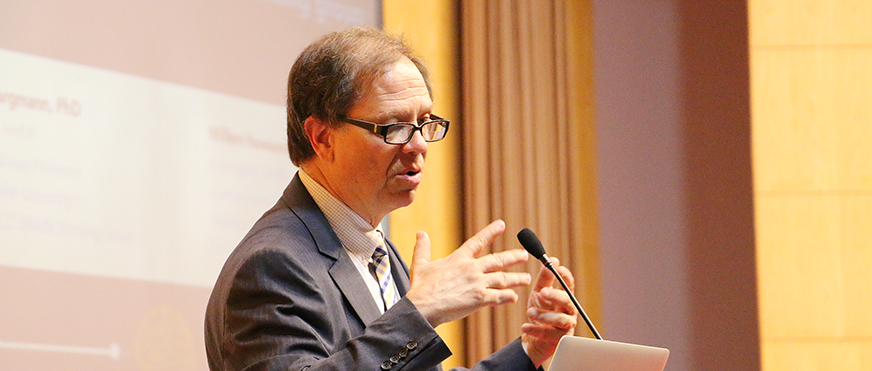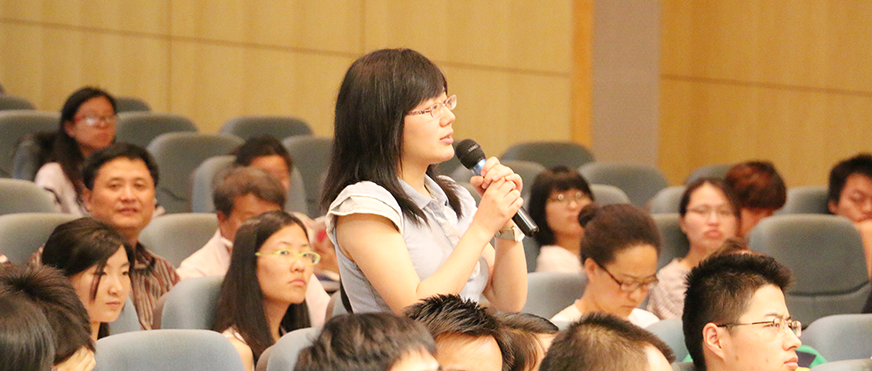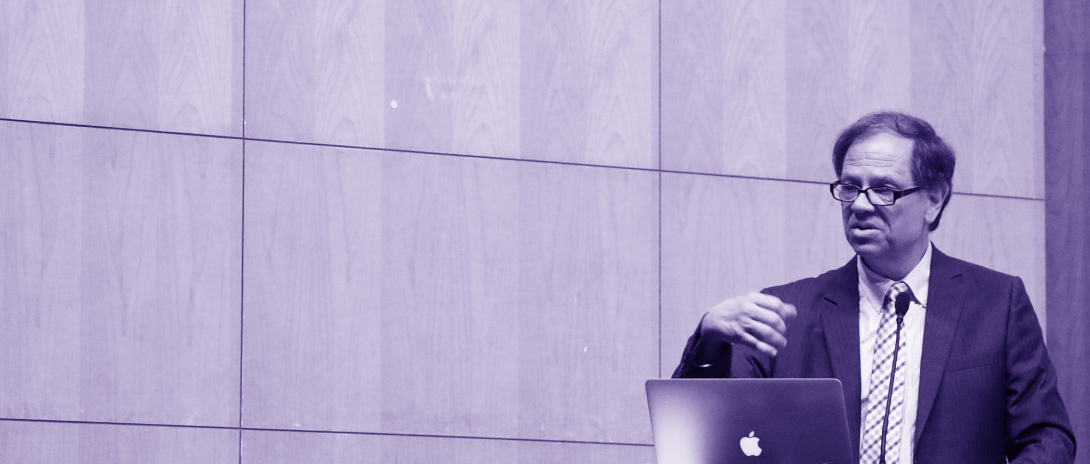NYU Shanghai and ECNU hosted a public lecture by top US neuroscientist William “Bill” Newsome last week, titled “The US BRAIN Initiative: What, Why, and How?”
Newsome, a world-renowned neurobiologist at Stanford University, cochairs the Advisory Committee to the Director (National Institutes of Health) on the Brain Research through Advancing Innovative Neurotechnologies (BRAIN) initiative in the United States. In his recent lecture at NYU Shanghai and ECNU, Newsome gave a vivid account of the challenging journey to “unlock the mysteries of the human brain,” and address the grand scientific challenge set out by US President Barack Obama. Newsome’s lecture laid out the intellectual context and a coherent national scientific plan to address this lofty goal.
The scientific plan spans 10 years, with the first five years emphasizing technology development and building tools to benefit the discipline. The latter five years will focus on discovery-driven science. Neural circuits and networks are identified as particularly promising, along with wide-ranging interdisciplinary efforts involving such sciences as physics, computer science, and mathematics. A detailed report for the 10-year project has been published, entitled “BRAIN 2025”.
Newsome also expressed desire and optimism for inter-institutional and international collaborations. In particular, China’s talent pools in the fields of engineering, physics, and mathematics will hold great promise for the new age of interdisciplinary neuroscience in China.
He also specifically mentioned the importance for neuroscientists in China to develop nonhuman primate research, as the monkey has well-developed prefrontal cortex (PFC), and PFC is the center of the higher cognitive function research.
The Newsome lecture was part of NYU Shanghai and ECNU’s summer program, the Computational and Cognitive Neuroscience Summer School 2014, and the mini-symposium “From Perception to Decision”.



About Bill Newsome
Bill Newsome is an investigator with the Howard Hughes Medical Institute and a professor of neurobiology at the Stanford University School of Medicine. He received a BS degree in physics from Stetson University and a PhD in biology from the California Institute of Technology. Newsome is a leading investigator in systems and cognitive neuroscience. He has made fundamental contributions to our understanding of the neural mechanisms underlying visual perception and simple forms of decision making. Among his honors are the Rank Prize in Optoelectronics, the Spencer Award, the Distinguished Scientific Contribution Award of the American Psychological Association, the Dan David Prize of Tel Aviv University, the Karl Spencer Lashley Award of the American Philosophical Society, and the Champalimaud Vision Award. His distinguished lectureships include the 13th Annual Marr Lecture at the University of Cambridge, the 9th Annual Brenda Milner Lecture at McGill University, and most recently, the Distinguished Visiting Scholar Lectures at the Kavli Institute of Brain and Mind, UC San Diego. He was elected to membership in the National Academy of Sciences in 2000 and to the American Philosophical Society in 2011.
About the NYU-ECNU Institute of Brain and Cognitive Science at NYU Shanghai
The NYU-ECNU Institute of Brain and Cognitive Science at NYU Shanghai is a unique research and training environment where we advance our understanding of brain function in health and disease. The primary goal of the institute is to understand the mechanisms by which neural circuits in the brain generate higher cognition and flexible behavior and how their impairments are associated with brain diseases, such as autism, schizophrenia, and Alzheimer’s disease.
The institute, built jointly between NYU and ECNU, will leverage the existing significant strength of neuroscience research at our universities—systems and cognitive neuroscience—using a range of tools, including the development of transgenic primates, molecular and physiological studies of neural circuits, experimental analysis of behavior, microcircuit and large-scale neural circuit modeling, and human brain imaging.
A focus will be on the prefrontal cortex (PFC), which plays a central role in many cognitive functions. The institute's core research areas include studies of the neural basis of working memory and choice behavior using single-neuron recordings from the PFC of behaving monkeys and rodents; computational modeling of the PFC and its interplay with the rest of the brain in decision-making, memory, selective attention and executive control; and imaging research on human language. The institute, which will have more than 20 collaborating research groups, will bring together faculty from NYU in New York City, ECNU, and the world.


